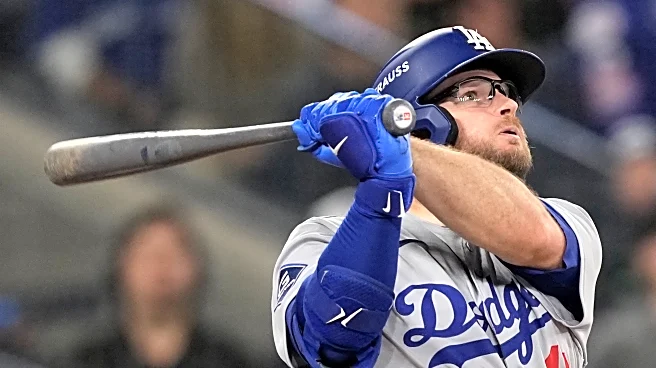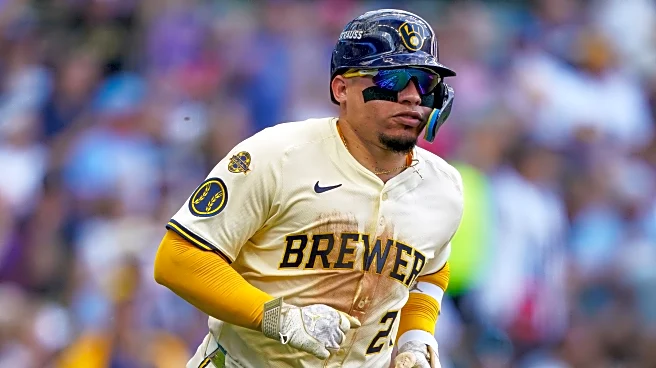What's Happening?
The Chicago Cubs have re-signed pitcher Colin Rea to a one-year contract valued at $5.5 million, with a club option for 2027 set at $7.5 million. This deal includes a $1 million buyout for the 2027 option,
ensuring Rea a minimum of $6.5 million. Previously, the Cubs held a $6 million option for Rea for 2026, but the new agreement provides him with slightly more guaranteed money and extends the team's control over him for an additional year. Rea, who posted a 3.95 ERA, 1.25 WHIP, and a 127:44 K:BB ratio over 159.1 innings in the 2025 season, is expected to start the 2026 season at the back end of the Cubs' rotation. However, his role may shift to a swingman position depending on further team acquisitions.
Why It's Important?
This contract extension is significant for both Colin Rea and the Chicago Cubs. For Rea, it provides financial security and an opportunity to continue his career with a team where he has demonstrated solid performance. For the Cubs, retaining Rea offers stability in their pitching lineup, which is crucial for their competitive strategy in the upcoming season. The deal also reflects the team's confidence in Rea's abilities and their commitment to maintaining a strong rotation. This move could influence other teams' decisions regarding their pitching staff, as the Cubs have set a precedent in valuing experienced pitchers with proven track records.
What's Next?
As the Cubs prepare for the 2026 season, Rea's role in the rotation will be closely monitored. Depending on the team's offseason acquisitions, Rea might transition to a swingman role, providing flexibility in the pitching lineup. The Cubs' management will likely continue to evaluate their roster needs and make strategic decisions to enhance their competitiveness. Fans and analysts will be watching how Rea's performance impacts the team's overall success and whether the Cubs will make additional moves to strengthen their pitching staff.
Beyond the Headlines
The re-signing of Colin Rea highlights the Cubs' strategic approach to roster management, emphasizing the importance of experienced players in maintaining team performance. This decision may also reflect broader trends in Major League Baseball, where teams are increasingly valuing consistency and reliability in their pitching staff. The deal could influence other teams to consider similar strategies, potentially leading to shifts in how contracts are negotiated and valued in the league.










